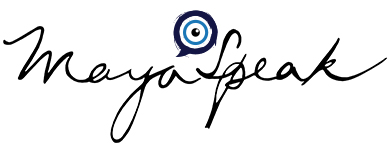I read that somewhere and wondered. I know that there are practical benefits to not being perfect. I had been that and done that and also today understand that quirkiness is a creative force in nature. Yet how do we get resilient? Have you ever thought about how our faults, weaknesses and unlucky breaks work to our advantage? Do they actually make us inventive and more efficient. This much is well known that we actually do not have anything to prove to anybody. We do not have to be perfect in any form to be known as successful human beings.

Our constant desire to be always right and to be in control only goes on to increase the disorder and chaos in our lives. Sometimes what we omit in our limited understanding is that forgiving and accepting ourselves actually catapults our tolerance levels. And also instead, we spend an inordinate amount of energy against our fate. Thinking that things will anyway go wrong, tempt the universe to make them wrong anyway.

We are all convinced that survival is all about getting all things right. We must absolutely stay ahead of every game. Contradictorily the best time to learn from one’s mistakes is before they happen. Admit to oneself that what the person is about to do is just not going to happen. Admit that you are about to make the wrong move. Ignore gut feelings and go ahead. Even if one is to fall on one’s face, one can always rise and go on. And that because as human beings it is our prerogative to be able to decide, even against our best judgements to do the wrong thing.

I must share these following instances that I read about –
In art and Literature one can see the instances of mistakes being purposely made to understand life differently –
For Instance
In Islamic art, the most luxurious carpets, pottery and mosaics had very evident flaws. Artists were encouraged to make them on purpose, to remind observers that God alone was capable of perfection.
In the Zen tradition, objects were carefully crafted to be imperfect, impermanent and incomplete, but beautiful all the same. It was – ‘Wabi Sabi’
In Music, certain notes that deviate from an established pattern, were often used differently. Beethoven was known to have replaced sounds with silences to express the escalation of sorrow.
In Literature James Joyce’s Ulysses showed typos, miss spellings, absence of punctuation in his prose.

I always hint to people and friends around me that the best thing in life is to have one, and that too one that does not depend on anything or anyone else. I’m talking about a real life, one that has challenges, disappointments, stress and laughter. Everyone knows that inner beauty creates a natural radiance, as a result of oxygen going to a busy brain that attracts blood to the head. Beauty is no more a physical thing. It can now be characterized by the absence of negativity.

So, what then are ‘The Rules of Real hood’?
Simplicity is suddenly a virtue, like striking a balance between two extremes.
Restrict one’s ego from claiming the prize as well as deflate our successes with the ever-healthy dose of -no nonsense. Curb our so-called combative natures as much as possible. Do we ever ask for help other than ask for explanations? One should attempt a change in that direction.

I have always believed that telling someone that they are right, does not make you wrong. I was reminded lately that all the lists I meticulously made were in actuality of no real value. Being super organized had its own hazards? Most likely, it was related to me, as when you update your appointment book, balance your bank account, clean your desk, it may give a certain amount of completion, self-fulfillment etc, but there is no prize for guessing if our super organizational skills annoyed people around us.

We have finally figured out for ourselves that no one ever warned us that life would be full of all these mixed messages. That ‘success’ in itself is just another word for a whole lot of more work. That ‘freedom’ is only something that is the right to do what’s allowed. Human beings are the slowest among all beings to learn.
Every other animal is born with a fully developed brain, and are ready with their survival instincts. Our brains on the other hand are developed only 20% at birth. We grow along the way, learning what we need.
So the crux of this is that – Making mistakes is a large part of – ‘getting organized’. Those blunders are the ones that prep us for our long journey ahead.



